The Library of Celsus stands as a magnificent testament to the architectural and intellectual achievements of ancient civilizations. Nestled in the heart of Ephesus, this grand structure is not merely a repository of scrolls but embodies the essence of human curiosity and the pursuit of knowledge. It serves as a cultural landmark that transcends time, offering insights into the values and aspirations of those who came before us.
The Architectural Splendor of the Library of Celsus
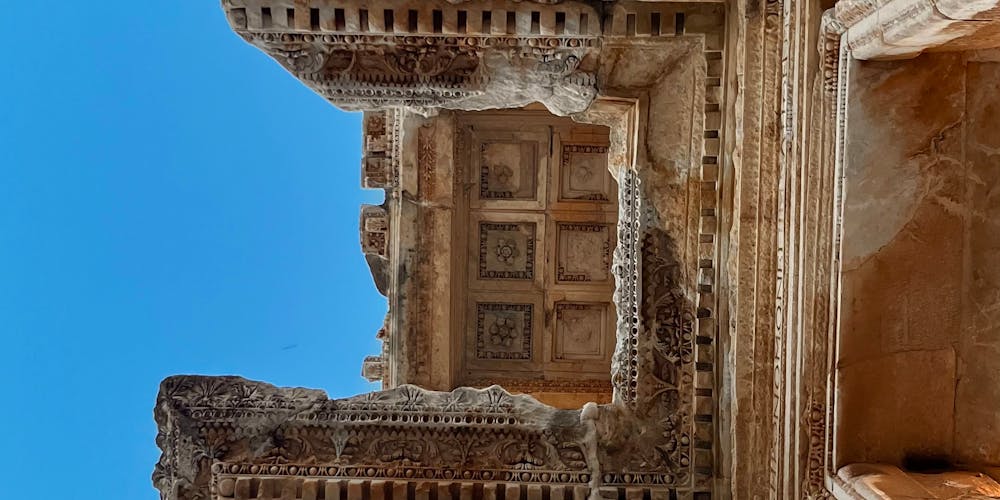
The Library of Celsus is an architectural marvel that showcases the ingenuity of Roman engineering and design. Its façade boasts an exquisite blend of classical elements, making it a significant symbol of the artistic heritage of the era.
Design and Construction Techniques

The construction techniques employed in the Library of Celsus reveal a sophisticated understanding of materials and aesthetics. Built primarily from local limestone, the library features a striking Corinthian-style façade characterized by four towering columns that create an imposing entrance.
The meticulous attention to detail is evident in every aspect of its design. The use of intricate carvings and decorative motifs reflects the artistic trends of the period, showcasing the skill of Roman artisans. This architectural approach not only served aesthetic purposes but also contributed to the functionality of the space, allowing natural light to illuminate the reading areas.
Moreover, the layout of the interior was thoughtfully planned to accommodate the needs of scholars and readers. With niches for scroll storage and ample seating areas, the library facilitated an environment conducive to study and intellectual exchange.
Symbolism and Cultural Significance
The Library of Celsus is more than just a building; it symbolizes the reverence for knowledge that characterized ancient societies. As a monumental tomb for Gaius Julius Celsus Polemaeanus, it embodies the idea that wisdom transcends death. The library thus represents a physical manifestation of humanity’s quest for enlightenment, connecting the past with the present.
This cultural significance extends beyond its role as a center for literature. The presence of inscriptions and statues within the library further highlights its importance as a site for education and moral instruction. Scholars gathered here not only to read but also to engage in philosophical discussions, fostering a spirit of inquiry that resonates even today.
The Library’s Enduring Legacy
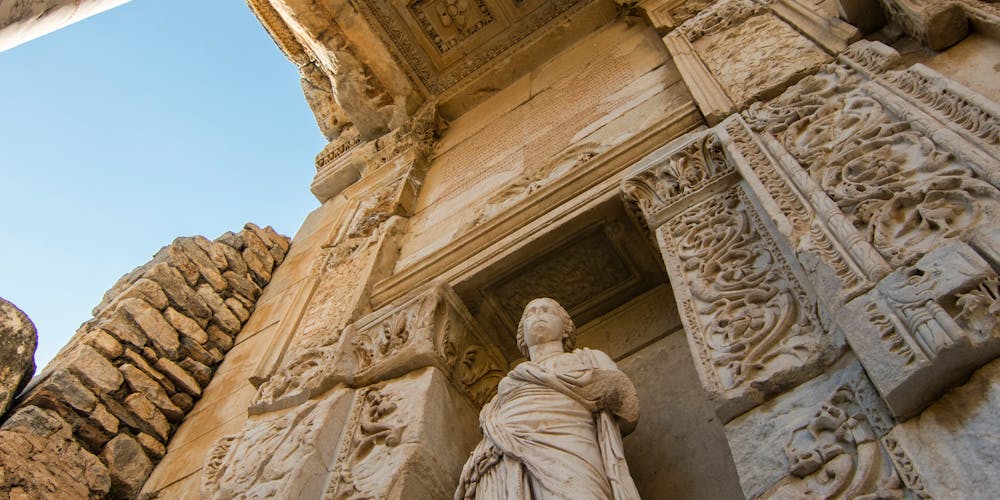
Throughout history, the Library of Celsus has endured the trials of time, standing as a resilient beacon of knowledge amidst changing civilizations. Its ruins tell the story of a society that valued education and intellectual discourse, offering lessons that remain relevant in our contemporary world.
As we navigate the complexities of modern life, the library’s legacy encourages us to prioritize learning and understanding. In an age where information flows at unprecedented rates, revisiting the core principles embodied by the Library of Celsus can help us cultivate a more profound appreciation for knowledge.
The Role of the Library of Celsus in Ancient Society

The Library of Celsus played a pivotal role in the social and cultural fabric of ancient Ephesus, serving as a hub of intellectual activity and community engagement. It was more than just an architectural feat; it was integral to the lives of those who sought knowledge.
A Center for Learning and Scholarship

At its peak, the Library of Celsus emerged as a vibrant center for learning, attracting scholars, philosophers, and students from across the region. The library housed thousands of scrolls, covering a diverse range of subjects, including philosophy, science, literature, and law.
This collection not only enriched the intellectual landscape of Ephesus but also fostered a culture of collaboration and dialogue among scholars. The library functioned as a forum for debates and discussions, encouraging critical thinking and innovation. Scholars could immerse themselves in texts, share ideas, and challenge existing theories, driving intellectual progress.
Furthermore, the architectural design of the library facilitated a sense of community. The spacious reading rooms and shared areas encouraged interaction, allowing individuals from different backgrounds to come together in pursuit of knowledge. This communal aspect created a dynamic atmosphere that nurtured creativity and inspired generations of thinkers.
Spiritual Dimensions of the Library

Beyond its academic functions, the Library of Celsus held spiritual significance for the people of Ephesus. As a monumental tomb for Gaius Celsus, the library symbolized the connection between knowledge and the divine. It served as a reminder that the pursuit of wisdom is intertwined with higher ideals and moral virtues.
The architectural elements, such as statues and altars, often depicted figures revered in both mythology and philosophy, reinforcing the notion that knowledge is sacred. The library’s role as a spiritual haven allowed individuals to reflect on the profound questions of existence while seeking answers in the written word.
This unique interplay between scholarship and spirituality created a rich cultural tapestry within the library, providing patrons with not only intellectual nourishment but also a deeper understanding of their place in the universe.
The Impact on Future Generations

The influence of the Library of Celsus extended far beyond its immediate context. By preserving and disseminating knowledge, the library laid the groundwork for future educational institutions. Its commitment to scholarship inspired subsequent generations to establish libraries as vital components of civilization.
Even today, the legacy of the Library of Celsus can be seen in modern libraries and educational systems worldwide. The principles of accessibility, community engagement, and the promotion of critical thought remain central to these institutions, echoing the values that the Library of Celsus championed.
In a world increasingly defined by rapid technological advancement, the lessons derived from the ancient library remind us of the enduring power of knowledge. Just as it once served as a sanctuary for seekers of wisdom, modern libraries continue to play a crucial role in fostering learning and exploration.
The Mythology and Mysticism Surrounding the Library of Celsus
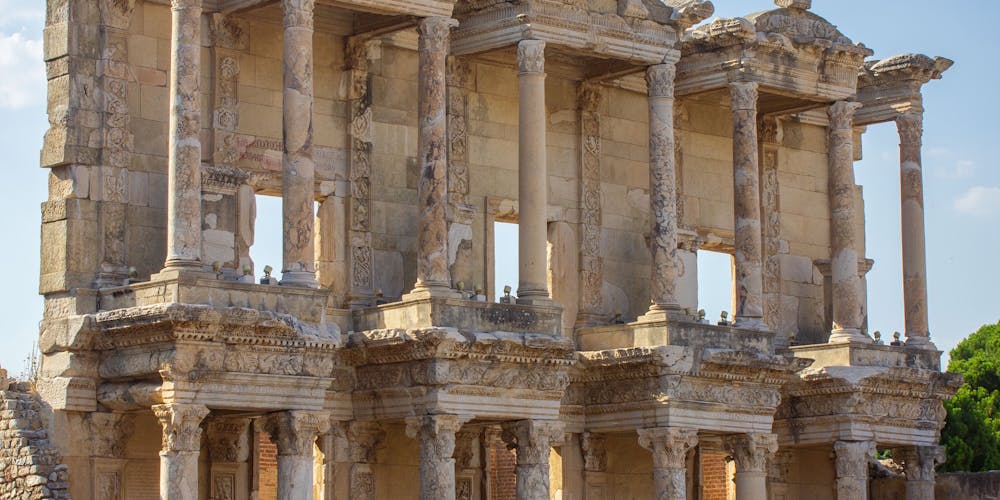
The Library of Celsus is steeped in myth and mysticism, adding layers of intrigue to its historical significance. These narratives have shaped perceptions of the library throughout the ages, creating an aura of enchantment that continues to captivate visitors.
Legends of Knowledge and Wisdom

Many legends surround the Library of Celsus, portraying it as a source of divine knowledge. One such tale suggests that the library was imbued with supernatural qualities, granting exceptional insight to those who entered its hallowed halls. This belief in the library’s mystical properties attracted scholars who sought not only to learn from the scrolls but also to unlock their hidden secrets.
The imagery associated with the library often evokes visions of illuminated manuscripts and celestial beings guiding the hands of scribes. This interpretation conveys the idea that knowledge is not merely a product of human effort but rather a gift bestowed upon humanity by higher powers. Such myths emphasize the reverence for knowledge and the importance of humility in the pursuit of wisdom.
The Intersection of Myth and Reality
While the Library of Celsus was undeniably a remarkable achievement of its time, the mythology surrounding it serves as a reflection of society’s values and aspirations. The narratives highlight the deep-seated desire for understanding and enlightenment, illustrating how cultures historically revered knowledge as a path to transcendence.
These tales intertwine with the real experiences of scholars who frequented the library, blending fact with fiction in ways that resonate through history. As individuals sought answers to existential questions, they turned to the library as a sanctuary, hoping to find solace in its scrolls and the wisdom encapsulated within them.
In analyzing these myths, we uncover the enduring human quest for meaning and the universal longing to connect with something greater than ourselves. The Library of Celsus becomes a symbol of that aspiration, representing our collective yearning for knowledge across generations.
The Modern Perception of the Library as a Mystical Place
Today, the Library of Celsus continues to inspire awe and wonder. Visitors to the site often recount feelings of reverence as they stand before its grand façade, imagining the countless minds that once traversed its corridors. This sense of connection fuels the belief that the library holds the echoes of those who sought knowledge long ago.
Modern interpretations of the library’s mystique draw parallels to contemporary themes in literature and art. The idea of libraries as magical realms where knowledge comes to life persists in popular culture, affirming the enduring allure of the written word.
As we explore the remnants of the Library of Celsus, we are reminded that the thirst for understanding is a timeless pursuit. The stories we create around such sites serve not only to honor the past but also to inspire future generations to seek knowledge with passion and commitment.
The Relevance of the Library of Celsus in Today’s World
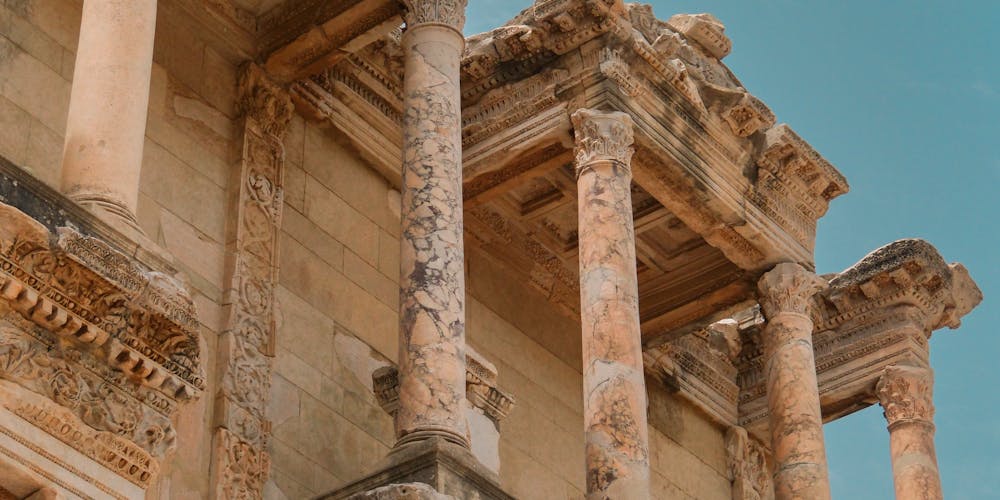
In our fast-paced, information-saturated society, the Library of Celsus offers valuable lessons about the importance of knowledge and the preservation of cultural heritage. As we grapple with the challenges of modernity, reflecting on the ideals embodied by this ancient library can guide us toward a more enlightened future.
Navigating Information Overload

The advent of technology has ushered in an era characterized by an overwhelming influx of information. The Library of Celsus reminds us of the need to curate knowledge intentionally. In an age where misinformation proliferates, discerning credible sources becomes paramount.
Just as the ancient library meticulously organized its collection to facilitate learning, we must develop strategies to manage information effectively. This includes cultivating critical thinking skills and fostering a culture of inquiry that encourages individuals to question and evaluate what they encounter.
Additionally, the library’s emphasis on accessibility serves as a reminder that knowledge should be available to all. In advocating for equitable access to education and information, we honor the legacy of the Library of Celsus, ensuring that the pursuit of wisdom remains inclusive and empowers diverse voices.
Embracing Lifelong Learning
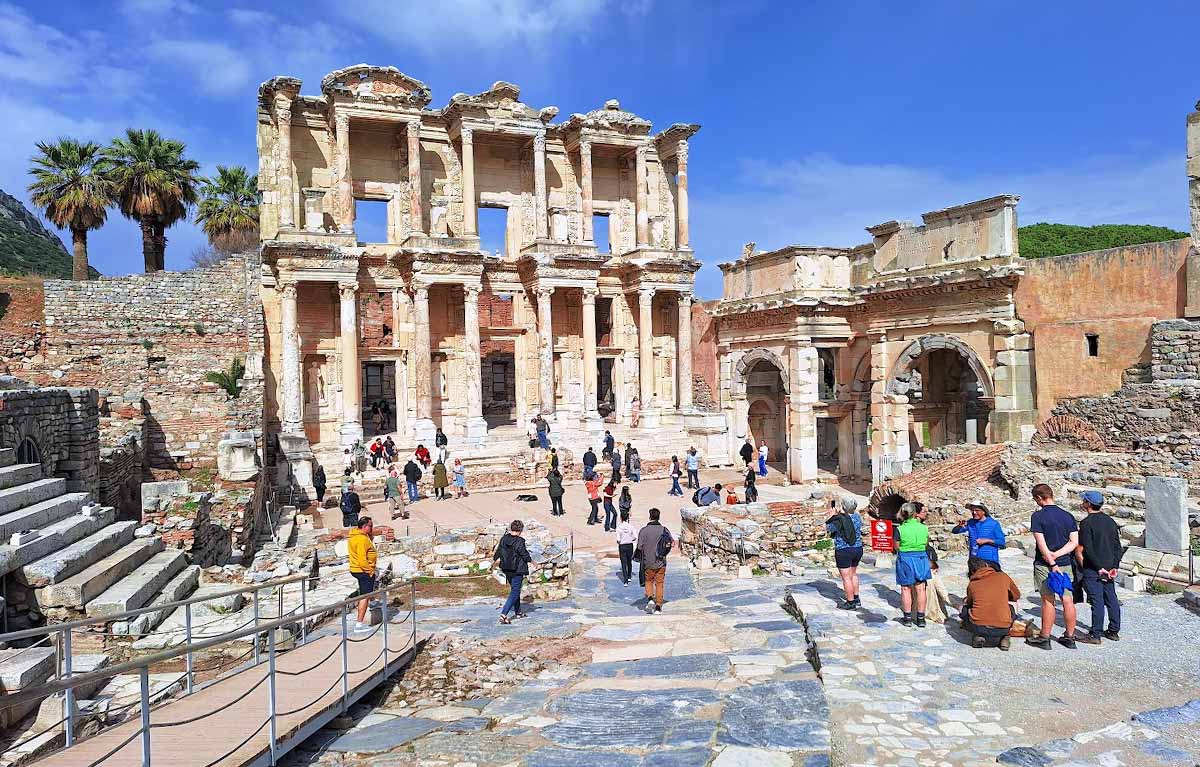
The ethos of the Library of Celsus champions the idea of lifelong learning—a concept that remains profoundly relevant today. As societal norms evolve and new fields of study emerge, embracing a mindset of continuous growth becomes essential for personal and professional development.
By nurturing a culture of curiosity and exploration, we mirror the spirit of the ancient library, where scholars dedicated their lives to the pursuit of knowledge. In fostering environments that encourage inquiry, we create opportunities for individuals to engage deeply with subjects that ignite their passions.
Moreover, the interconnectedness of knowledge across disciplines resonates in today’s interdisciplinary approaches. The Library of Celsus exemplifies the richness that emerges when diverse fields intersect, inspiring us to cultivate holistic perspectives in our pursuit of understanding.
Preserving Cultural Heritage for Future Generations

The Library of Celsus serves as a poignant reminder of the importance of preserving cultural heritage. As we confront the challenges posed by globalization and homogenization, safeguarding unique histories and identities becomes imperative.
The library stands as a testament to the power of storytelling and the role of cultural artifacts in shaping our collective memory. By valuing and preserving our heritage, we ensure that future generations inherit a rich tapestry of history, knowledge, and tradition.
Emulating the commitment to scholarship embodied by the Library of Celsus, we must actively engage in efforts to conserve libraries, archives, and cultural institutions. This dedication to preservation allows us to honor the past while fostering connections to the present and future.
Conclusion

The Library of Celsus is much more than a mere structure; it is an emblem of humanity’s relentless pursuit of knowledge and understanding. From its architectural brilliance to its role as a center of scholarship, the library encapsulates the values that define our shared heritage.
As we reflect on its legacy, we are reminded of the timeless importance of knowledge and the responsibilities that come with it. In a world fraught with challenges, the Library of Celsus inspires us to prioritize learning, preserve cultural heritage, and engage with information thoughtfully. Ultimately, its enduring message encourages us to embrace our curiosity and celebrate the transformative power of knowledge, bridging the gap between the past and the future.
✉️ Stay Connected — Subscribe for Weekly Updates
Discover timeless stories, practical wisdom, and beautiful culture — delivered straight to your inbox.
*We only share valuable insights — no spam, ever.






